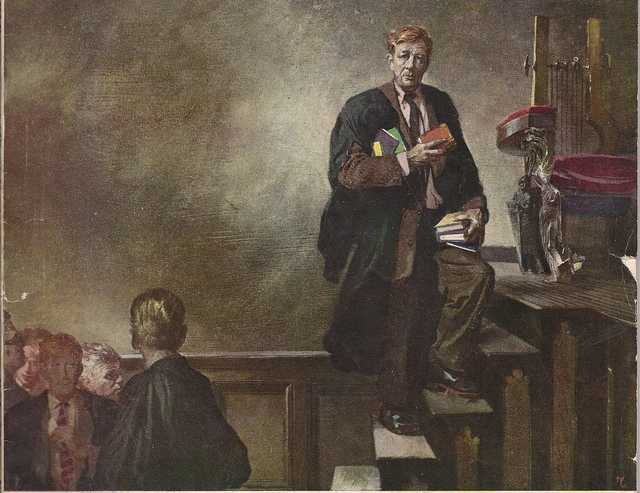How did Auden (W.H.) get it so right? He died in 1973, but his lines come to mind during the 21st century’s most wracked moments.
Sept. 1, 1939, was written around that date from “one of the dives/ On Fifty-second Street” in New York, at the end of “a low dishonest decade,” the 1930s. It included the Great Depression and the global spread of fascism, with World War Two just ahead. Fair enough, he was there.
But on Sept. 11, 2001, with Auden long dead, his poem seemed to rise from the rubble in Manhattan — reprinted, quoted, viral etc. That was at the end of a proud, boastful decade, which followed the Soviet Union’s demise, with smug Western declarations of victory and much reaping of economic spoils.
The lines that gripped, I’d say, were: “I and the public know/What all schoolchildren learn,/Those to whom evil is done/Do evil in return.” If that line had been taken to heart by Western leaders, perhaps the low dishonest decade that came after 9/11 might’ve been avoided: invasions of Afghanistan and Iraq, continuing slaughter, fractured nations, the rise of Daesh, mass refugee flows, more terror attacks, demagogues manipulating the fear, even perhaps Brexit.
At the time he wrote his poem, Auden was attacked for moral perversity, as if he’d suggested Hitlerism was justified. He hadn’t. He was simply noticing that evil comes from somewhere, it has antecedents. If you want to avoid it, you must look to them, and your own complicity. In our time, journalist Robert Fisk has spent decades warning from the Mideast: if “we” continue maltreating this region, it will eventually rebound on us. Hence: 9/11.
Now, picturing Trump’s inauguration, another Auden poem comes to mind: In Memory of W.B. Yeats. He wrote it a year later with war fully underway: “In the nightmare of the dark/All the dogs of Europe bark,/And the living nations wait,/Each sequestered in its hate.” The line that bites on Inauguration Day is: “Intellectual disgrace/Stares from every human face.” How so?
Obama and Bill Clinton will be there, on the platform above the mall, as Trump is sworn in. Both are “smart guys,” a term they like using to display their street sense. Both should have known better; that’s what makes them an intellectual disgrace. Obama had a chance, in 2009, after the crash and with majorities in Congress, to break up the banks and restore the law that had prevented them from plundering and wrecking their entire society. He could’ve seen that some went to jail for what they did to people’s lives.
Clinton, smirking all the way (John Travolta caught him perfectly in Primary Colours), had cancelled that law reining in high finance. He gave them whatever they wanted, including NAFTA, which carried Trump into office.
Hillary is also there. Is she a disgrace too? Of course, though, as they say in traffic court, with an explanation. She’d given up a lot, including her own name, for Bill’s career; then came the Lewinsky humiliation. But her sense of a reward owed, led her to run, surely knowing what an awful candidate she was.
Trump may be least culpable. He’s almost too stupid to be included. But failing to know your own limits is also intellectually disgraceful.
So what? It’s just poetry, as Auden knew: “For poetry makes nothing happen: it survives/ … A way of happening, a mouth.”
But it reminds us that, awful as things usually are, we retain a bizarre power, so long as we’re honest: “Sing of human unsuccess/ In a rapture of distress.”
With that paradoxical power, and since each person is a new beginning, fresh and unmarked at birth, there is always the possibility of better things, despite mountains of failure piling up. So: “In the prison of his days/Teach the free man how to praise.”
The first inauguration I witnessed on TV was JFK’s when I was a kid. A poet was present — Robert Frost, the first poet I revered — and his poem (The Gift Outright) blew away in the wind, only a year before 2016’s Nobel laureate in literature wrote, “The answer, my friend, is blowin’ in the wind.”
Frost went on to say it by heart. That’s what’s practical about poetry: it lodges up on your memory shelf and you can take it down when you need it.
This column was first published in the Toronto Star.
Image: Roger Doherty/flickr




